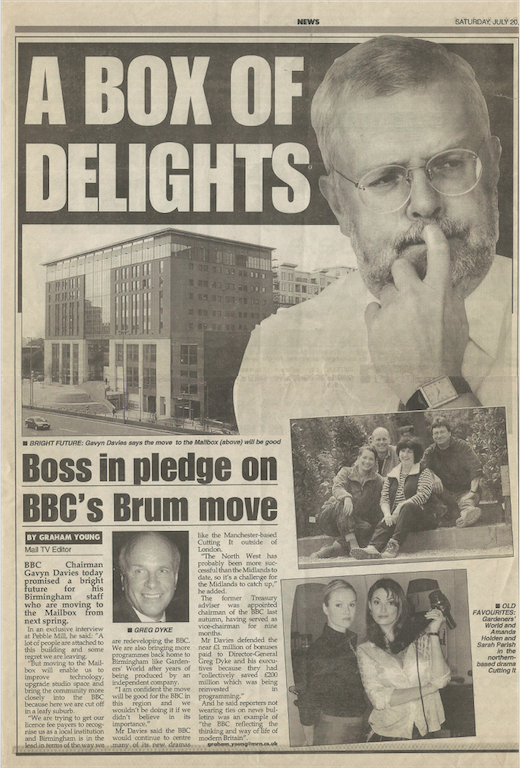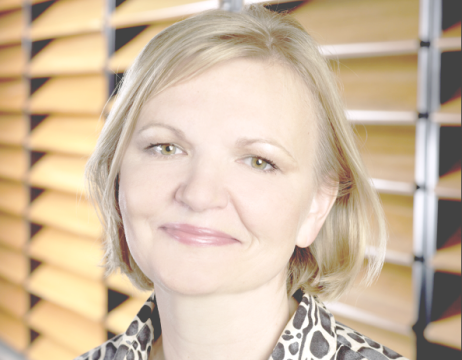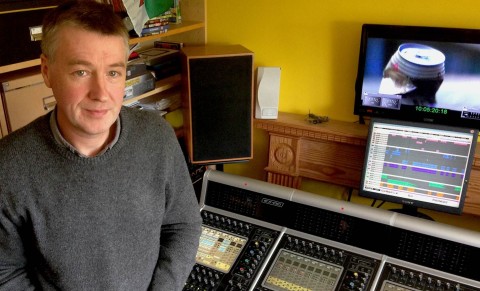
Pebble Mill building circa 1970, copyright resides with the original holder, no reproduction without permission
I was one of the first people to work in Pebble Mill Studios, because all the Midland sound editing facilities were in mono at the time, and some orchestral concerts were being recorded at OBs in stereo. In fact, the Producers like Richard Butt, had to travel to London to edit their programmes. I did try to tell the management that there were stereo editing channels at Wood Norton, a lot closer, but I don’t think they understood. (These days, Wood Norton would have jumped at the chance to charge for hiring out editing facilities, but this was before Total Costing, Producer Choice, and department Business Units. Not that I am saying these were necessarily a good thing). So, when the Pebble Mill building was nearing completion, we were allowed to use the cubicle of Studio 1 for tape editing.
To be fair, I must mention another of my disasters. I was using the new Studer tape machines in Studio 1, B62 I think. I had previously used the Studer C37 at Wood Norton on attachment as an Assistant Lecturer, but I was caught out by a feature of the new machine where the wind will inch back and too, but will lock on if you have pressed the stop button beforehand. Anyway, I mangled a tape of an orchestra. The producer, Ron Gardener kindly allowed me to keep the reel while I sorted it out. In fact I had everything except one chord of music, and I built that from copying other bits of the performance and editing them together. A few days later, I played this to Ron, who said that he would have accepted that, but he had since found that Alan Ward, the Studio Manager who recorded it, had a 7 and a half ips copy recorded at the time of the performance. So we used that just for one phrase, about a bar of music. Ron Gardener then very kindly said that I had done good work for him in the past and he was prepared to overlook it. Nice of him to say that, and the only tape I ever damaged, but I did let myself down.
Colin Pierpoint
The following comments were left on the Pebble Mill Facebook page:
Carolyn Davies: “Colin, was this why future trainee Audio Assistants had to editing in a missing phrase of music as part of their 1/4″ editing training at Wood Norton?? Great story…”
Andy Freeth: “lan Ward’s OB stores equipment list was always “one and a spare!” Hardly surprising that there was another recording ferreted away Colin!”








